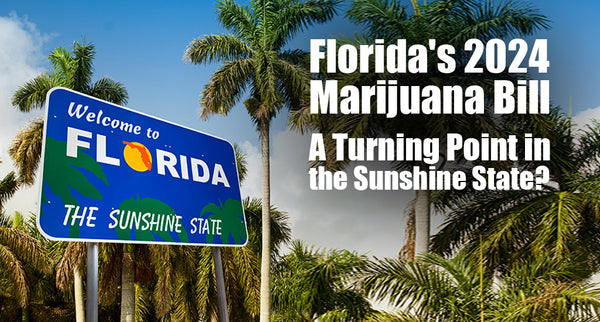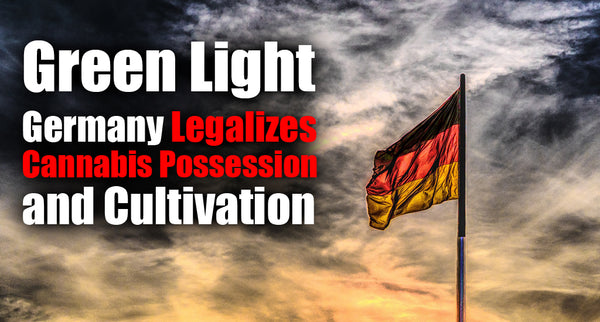
Ron DeSantis on Cannabis: A Complex Stance Amidst Presidential Ambitions
In recent days, Florida Governor Ron DeSantis, a potential 2024 GOP presidential nominee, has expressed his views on cannabis, particularly focusing on states' rights and the impact of legalization. While DeSantis has a history of opposing cannabis legalization, his recent remarks in Iowa indicate a nuanced position that respects state-level decisions. This article explores DeSantis' evolving stance on cannabis, analyzing his recent statements and their implications for the future of cannabis legislation.
DeSantis' Historical Position and Recent Remarks
In exploring Governor Ron DeSantis' evolving stance on cannabis, it's clear he treads a fine line between caution and progressiveness. Known for his firm opposition to recreational marijuana, DeSantis often highlights the negative impacts he perceives it has on society—from its "putrid" odor to the potential dangers of potent, contaminated strains. However, his approach isn't one-dimensional.
While keeping a hard line against recreational use, DeSantis shows a more accommodating side regarding medical marijuana. He respects Florida's decision to establish a medical marijuana program, understanding its therapeutic value and the voters' will. This duality in his stance reflects the broader, complex dialogue around cannabis legalization.
His recent campaign trail comments further illustrate this balance. DeSantis maintains his resistance to decriminalizing marijuana on a federal level, focusing on its perceived harms to the workforce and the risks associated with its potency and purity. Yet, he acknowledges the operational medical marijuana framework in Florida, hinting at a nuanced understanding of cannabis' role in healthcare.
DeSantis' views encapsulate the ongoing debate in cannabis policy—a confluence of public health considerations, respect for state autonomy, and shifting public opinion. His position is a microcosm of the national conversation, highlighting the intricacies and challenges in shaping a coherent cannabis policy that navigates between societal well-being and individual freedoms.
The Colorado Example and DeSantis' Critique
Medical Marijuana and DeSantis' Concerns
In the cannabis sphere, Florida Governor Ron DeSantis presents a multi-faceted narrative. While acknowledging the constitutionally enacted medical marijuana legalization in Florida, DeSantis raises an eyebrow at the motives behind the growing number of medical cannabis patients. He queries whether this uptick veils recreational intentions, rather than purely medicinal ones.
DeSantis' commitment to a free-market ethos in the medical cannabis industry, however, seems at odds with his administration's actions. This includes a dramatic fee hike for medical cannabis business licenses, soaring from $60,000 to an eye-watering $1.33 million biennially, underscoring a tension between ideology and policy.
Further tightening the reins, DeSantis endorsed legislation imposing stricter advertising and manufacturing guidelines on medical marijuana, explicitly barring any promotion of recreational use. This stance dovetails with a broader, cautious approach to cannabis, as seen in his approval of a bill banning consumable hemp products, including cannabis-infused chewing gum, for those under 21.
In a nutshell, DeSantis' stance on Florida's medical marijuana program reflects a blend of skepticism and regulatory stringency. It's a complex dance of endorsing voter-approved medical use while guarding against perceived recreational loopholes, all within a framework that seeks to balance market freedom with stringent oversight.
Conclusion
Governor Ron DeSantis' cannabis policy stance reveals a nuanced political chess game. Balancing his conservative base's expectations with a shifting national sentiment on cannabis, DeSantis threads a strategic path. His firm stance against recreational use contrasts with a pragmatic acceptance of medical marijuana, reflecting an astute awareness of voter preferences and state rights.
Politically, this positions him as a traditionalist yet adaptable leader, potentially appealing to a broader spectrum of voters. His critique of Colorado's legalization and regulatory actions in Florida underscore a cautious, yet politically calculated approach to cannabis, indicative of his broader strategy in navigating complex policy arenas.
Leave a comment
Comments will be approved before showing up.



